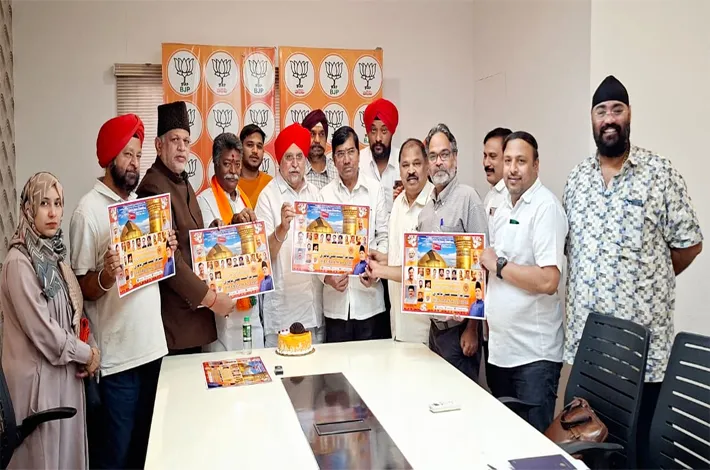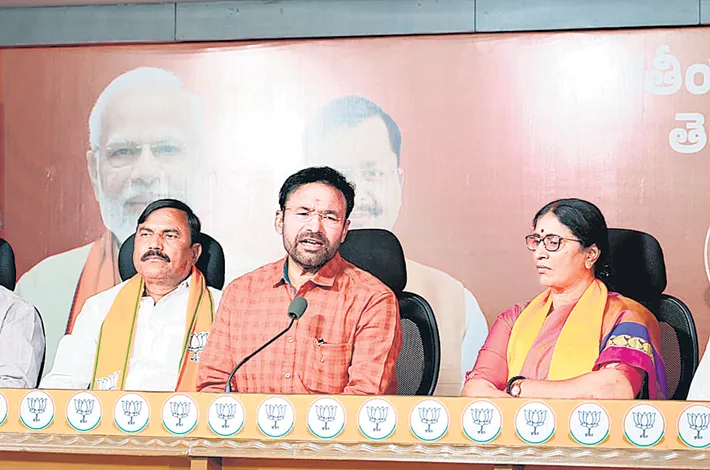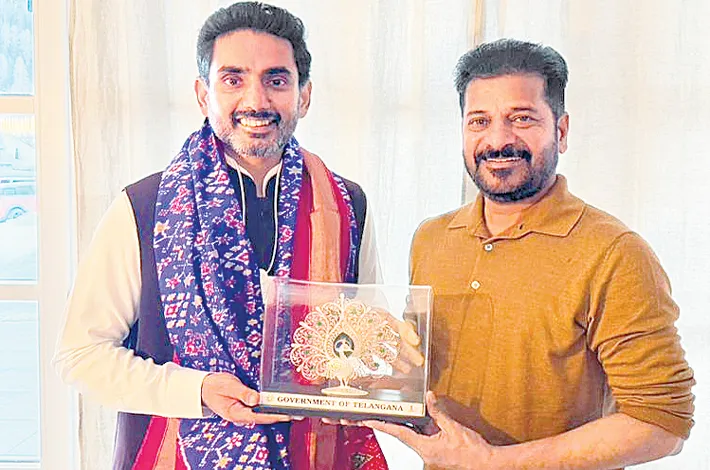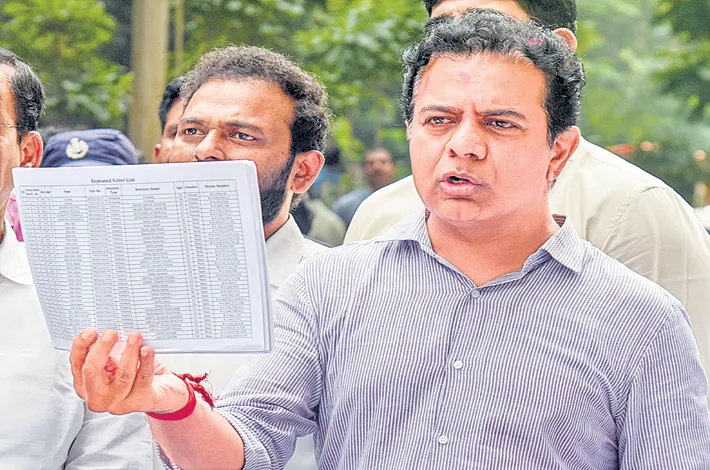Lights of the Heart
19-10-2025 12:00:00 AM
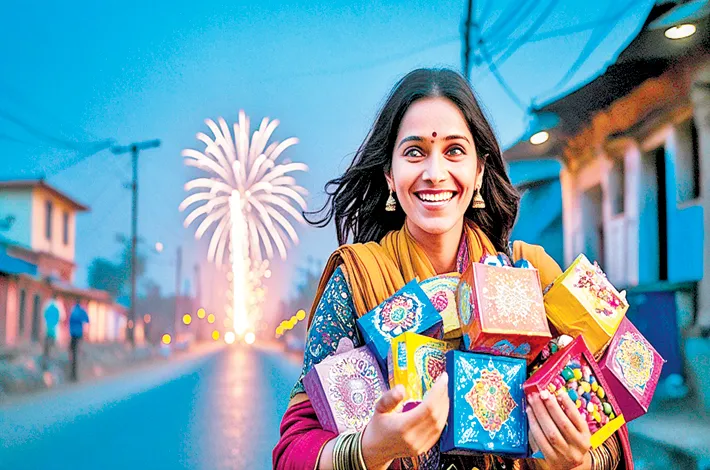
In the heart of rural Uttar Pradesh, where the Yamuna River whispered secrets to the sugarcane fields, lay the village of Chandpur. It was Diwali eve, and the air hummed with anticipation. Clay diyas flickered to life on every windowsill, their flames dancing like mischievous fireflies. The scent of frying jalebis and roasting peanuts mingled with the earthy perfume of monsoon-kissed soil, still damp from the last rains. Children scampered through narrow lanes, their laughter echoing off mud-brick walls painted with fresh turmeric paste. But for Maya, the twenty-five-year-old weaver tucked away in her thatched hut on the village edge, the festival's glow felt like a distant star—beautiful, yet untouchable.
Maya's hands, calloused from years at the loom, paused over a half-finished sari. The silk threads, dyed crimson and gold, mocked her stagnation. Once, she had dreamed of selling her designs in the bustling markets of Lucknow, where women in shimmering saris bartered under banyan trees. But dreams had unraveled like cheap cotton when her father fell ill two years ago. The village potter's kiln had claimed his lungs with silica dust, leaving Maya to tend the loom alone, her mother too frail to help. "Diwali is for light, beta," her mother would murmur, eyes rheumy with unshed tears. "Even in darkness, we kindle hope." Maya nodded, but hope felt as fragile as the rangoli patterns she traced at dawn—vibrant mandalas of rice flour and flower petals, destined to fade with the first rain.
This Diwali, the village buzzed with extra fervor. The sarpanch had announced a grand mela by the banyan grove, complete with a fireworks display funded by the cooperative. Neighbors gossiped about the bride from the neighboring hamlet arriving with trunks of Lucknowi sweets, and the young men practicing their sword dances under the harvest moon. Maya watched from her doorway as Lakshmi Devi, the widow next door, strung marigold garlands across her fence. "Come join us, Maya," Lakshmi called, her voice warm as ghee. "Your weaves could fetch a pretty sum at the fair. Lighten your load."
Maya forced a smile, but her chest tightened. Sell her sari? To whom? The village women bought only plain cotton for daily wear, and the rich folk from the city never ventured this far. Last year, she'd bartered a shawl for a sack of lentils—barely enough to last the winter. As dusk painted the sky in saffron hues, Maya lit her own row of diyas on the stoop. Their flames sputtered in the evening breeze, casting shadows that twisted like her regrets. Why chase stars when the ground demanded her feet stay planted?
The evening prayers began with the clang of brass bells from the small temple at the village center. Maya lingered outside, the chant of "Jai Shri Ram" pulling at her like an old melody. Inside, the idol of Lakshmi gleamed under oil lamps, adorned with coins and betel leaves. Families gathered, offering sweets piled high—ladoos sticky with jaggery, barfis dusted in pistachios. Maya's mother, propped on a charpoy with a shawl over her shoulders, whispered, "Go, Maya. The goddess favors the bold."
Reluctantly, Maya slipped into the throng, her simple cotton salwarkameez brushing against starched finery. The air thickened with incense and the sharp tang of camphor. She spotted young Ravi, the schoolteacher's son, helping elders distribute prasad. His eyes, dark as kohl-lined almonds, met hers across the crowd. Once, before her father's illness, they'd shared stolen glances during Holi, his laughter as bright as the colored powders they'd flung. Now, he was promised to a girl from Agra, a match sealed with dowry gold. Maya looked away, her heart a diya flame flickering low.
As night deepened, the mela ignited. Lanterns bobbed like fireflies along the dirt paths, and stalls hawked everything from terracotta toys to spiced chai bubbling in earthen pots. Firecrackers popped in staccato bursts—sparklers hissing like angry cobras, anars whirling in emerald and ruby trails. Children shrieked with delight, their faces smeared with ash from burst bombs. Maya wandered the edges, her unfinished sari bundled under her arm like a secret shame. At the weaving stall, old Hariji displayed bolts of coarse wool, but his eyes lit when he saw her fabric. "Ah, Maya! This is no ordinary thread—it's poetry woven in silk. Show it to the bride's kin; they'll see the goddess in every knot."
Emboldened, Maya approached the central pavilion where the bride, Priya, held court amid a circle of admirers. Priya's laughter tinkled like ankle bells, her bridal lehenga a cascade of zari embroidery. "Bhabhi," Maya ventured, voice barely above the din, "I've brought something for your trousseau." She unfurled the sari, its patterns blooming like lotuses under the lantern light—intricate paisleys intertwined with tiny diyas, symbolizing the festival's eternal flame.
Priya's fingers traced the weave, eyes widening. "This is exquisite! Did you craft it alone?" Maya nodded, throat tight. The gathering hushed as Priya draped the sari over her shoulder, the silk catching the firelight in a halo of gold. "It's perfect for my wedding dawn," Priya declared. "How much?" Whispers rippled—twenty rupees? Fifty? Maya stammered a modest price, but Priya pressed double into her palm, along with a ladoo wrapped in silver foil. "For your light, sister. Diwali teaches us to share the glow."
Word spread like wildfire. Women clustered around Maya, fingering the fabric, murmuring praises. "We've overlooked your talent too long," Lakshmi said, buying a scarf on the spot. Even Ravi approached, his smile tentative. "You've always had fire in your hands, Maya. Don't let it dim." His words stung like salt on a fresh rangoli, but they kindled something deeper—a spark long banked.
As midnight tolled with the deepest boom of the skyrocket finale, Maya returned home, pockets jingling with coins, arms laden with sweets from grateful neighbors. Her mother waited by the door, diyas renewed with fresh ghee. "See, beta? Light finds its way." They sat together, sharing barfi under the stars, the village a tapestry of twinkling lamps stretching to the horizon. Fireworks etched silver arcs across the velvet sky, each burst a victory over the shadows that had clung to Maya's soul. In that moment, Maya understood. Diwali wasn't just lamps on thresholds; it was the courage to step into the unknown, to weave dreams from the threads of doubt. The sari's patterns, once a burden, now promised more—bolts of silk ordered from the city trader who'd heard of her work. As the last cracker faded to embers, Maya traced a new rangoli at her feet: a blooming lotus, encircled by flames. Tomorrow, she'd resume the loom, not in fear, but in fire.
The village slept under a blanket of light, and Maya, for the first time in years, dreamed not of escape, but of home aglow.





